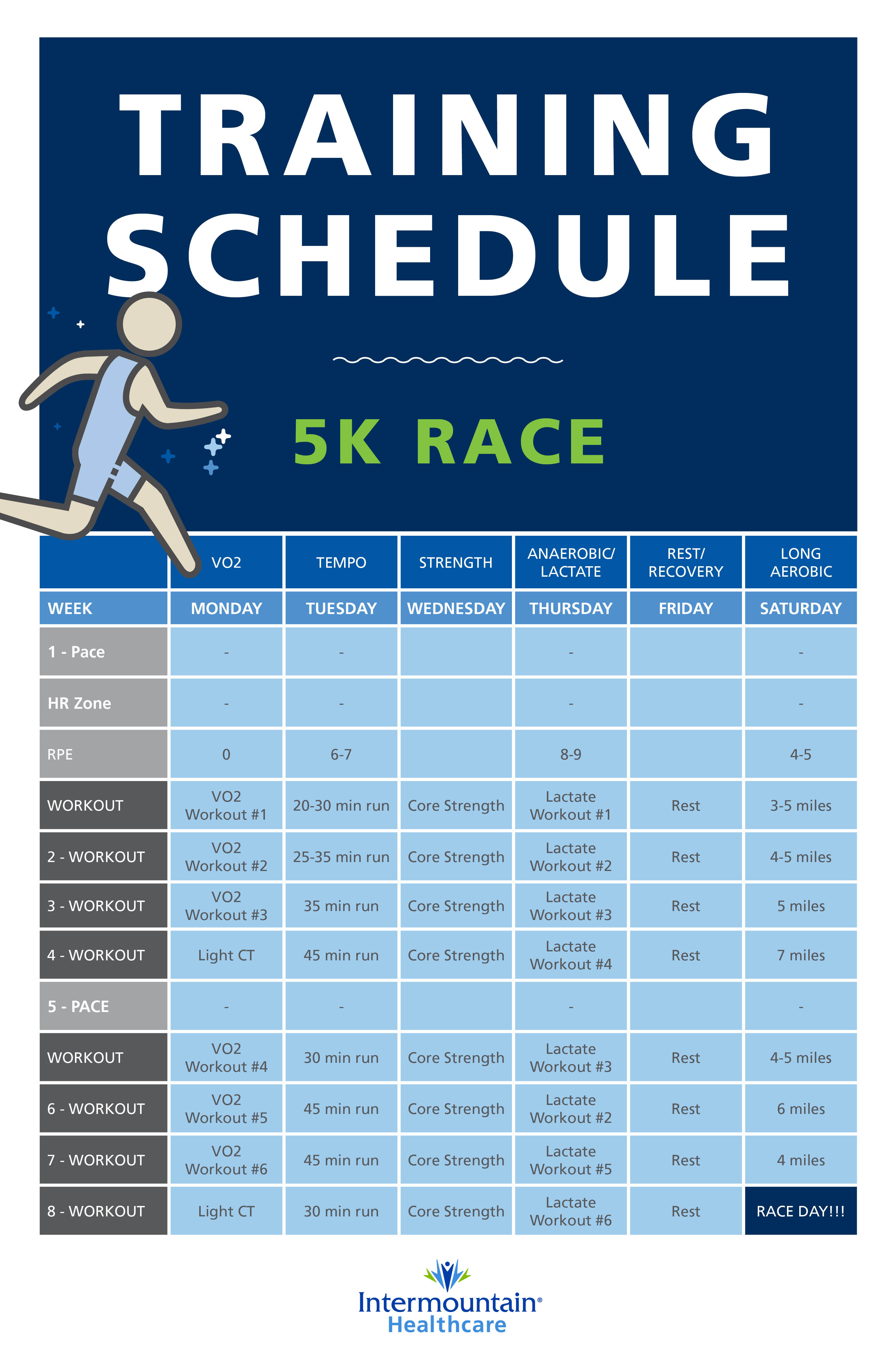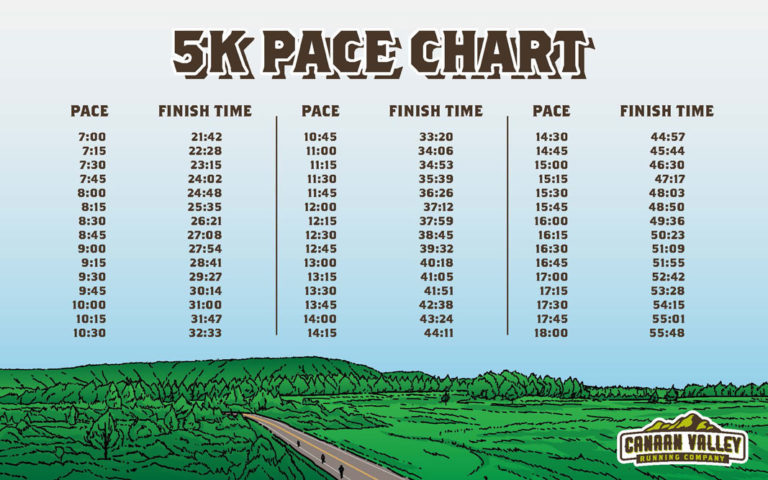What Factors Influence 5K Run Times?
When estimating how long it should take to complete a 5K run, several factors come into play. A runner’s fitness level, running experience, training frequency, and pace significantly influence their completion time. Understanding these factors is crucial for setting realistic goals and creating a tailored training plan. Fitness level, for instance, can be categorized into three areas: cardiovascular fitness, muscular endurance, and strength. These components can be improved through consistent training and a well-structured plan, ultimately leading to a faster 5K run time.
Assessing Your Fitness Level for a 5K Run
To accurately estimate how long it should take to complete a 5K run, it is essential to assess your current fitness level. This assessment should include evaluating your running pace, endurance, and strength. One practical way to measure running pace is by timing yourself during shorter runs, such as a mile or a kilometer. By calculating your average pace per mile or kilometer, you can estimate your potential 5K completion time. Additionally, assessing endurance and strength can be achieved by gradually increasing the duration and intensity of your runs. Tracking progress over time is crucial for establishing a baseline and setting realistic goals. By monitoring improvements in pace, endurance, and strength, you can adjust your training plan accordingly and make informed decisions about your target 5K run time. Regular assessments also help maintain motivation and provide a sense of accomplishment as you see your fitness level improve.
Creating a Personalized 5K Training Plan
A tailored 5K training plan is essential for optimizing your performance and achieving your desired run time. By considering individual fitness levels and goals, you can create a plan that effectively targets areas for improvement and promotes consistent progress. A successful training plan typically includes three essential components: base building, speed work, and recovery. Base building involves gradually increasing your running distance and duration to improve endurance and build a solid foundation for more intense workouts. This phase should focus on consistency and gradual progression, allowing your body to adapt to the increased workload without risking injury.
Speed work is a crucial component of any 5K training plan, as it targets running pace and helps build strength and power. Examples of speed work exercises include interval training, tempo runs, and hill repeats. These workouts should be incorporated into your training plan strategically, with the aim of improving overall running efficiency and maintaining a faster pace during your 5K run.
Lastly, recovery is often overlooked but plays a vital role in any training plan. Adequate rest and recovery allow your body to repair and strengthen muscles, preventing overtraining and injury. Schedule regular rest days and incorporate cross-training activities to maintain fitness while giving your running muscles a break.
Training Frequency and Intensity for a 5K Run
Consistent training and progressive overload are essential for improving 5K run times. The frequency and intensity of your workouts should be tailored to your individual fitness level, running experience, and available time. For beginners, start with running three to four times per week, allowing adequate recovery time between sessions. As fitness levels improve, gradually increase training frequency to four to five times per week. More experienced runners may benefit from higher training frequencies, but ensure that you balance intensity and recovery to avoid overtraining.
In terms of intensity, incorporate a mix of low, moderate, and high-intensity workouts into your training plan. Low-intensity runs, such as easy runs or recovery runs, should make up the majority of your weekly mileage. Moderate-intensity workouts, like tempo runs and long runs, challenge your cardiovascular system and help build endurance. High-intensity interval training (HIIT) workouts, such as interval sessions and hill repeats, further develop speed and power.
When determining training volume and intensity, consider factors such as your current fitness level, running experience, and available time. A balanced training plan should include a mix of low, moderate, and high-intensity workouts, with adequate recovery time to ensure continued progress and prevent injury.
How to Improve Your Pace for a Faster 5K Run
Improving your running pace is crucial for achieving a faster 5K run time. By incorporating specific workouts and focusing on proper form, breathing, and mental focus, you can maintain a faster pace and increase your overall running efficiency. Here are some actionable tips and techniques to help you improve your running pace:
- Interval Training: This workout involves alternating between high-intensity and low-intensity intervals. For example, run at a faster pace for 1 minute, followed by 2 minutes of jogging or walking. Interval training helps improve cardiovascular fitness, speed, and running economy.
- Tempo Runs: A tempo run is a sustained, moderate-intensity effort that lasts between 15 and 30 minutes. This workout should be performed at a challenging but sustainable pace, which can be around 80-85% of your maximum heart rate. Tempo runs help build endurance and improve lactate threshold, allowing you to maintain a faster pace for longer periods.
- Hill Repeats: Running uphill at a challenging pace can help build strength, power, and running efficiency. After warming up, find a moderately steep hill and run up it at a hard effort for 30-60 seconds. Walk or jog back down as recovery, and repeat for 3-5 repetitions. Hill repeats can improve your running form, leg strength, and overall speed.
- Proper Form: Focus on maintaining an upright posture, engaging your core, and landing midfoot. Avoid overstriding, as this can lead to inefficiencies and increased injury risk. By practicing proper running form, you can improve your running economy and maintain a faster pace with less effort.
- Breathing Techniques: Deep, rhythmic breathing can help improve oxygen delivery and reduce fatigue during a 5K run. Experiment with different breathing patterns, such as inhaling for three steps and exhaling for two, to find what works best for you.
- Mental Focus: Cultivate a strong mental attitude by setting realistic goals, visualizing success, and practicing self-talk. A positive mindset can help you push through discomfort and maintain a faster pace when the going gets tough.
Nutrition and Hydration Strategies for 5K Runs
Proper nutrition and hydration play a critical role in optimizing your performance during a 5K run. By fueling your body with the right nutrients and maintaining adequate hydration levels, you can enhance your endurance, speed, and overall running experience. Here are some recommendations on pre-run meals, during-run fueling, and post-run recovery nutrition, along with tips on staying hydrated before, during, and after runs.
Pre-Run Meals
Aim to consume a balanced meal 2-3 hours before your 5K run. This meal should consist of carbohydrates, protein, and healthy fats. Some examples include whole-grain toast with avocado and scrambled eggs, oatmeal with fruit and nuts, or a quinoa salad with grilled chicken and vegetables. Avoid consuming high-fiber and high-fat foods close to your run, as they may cause digestive discomfort.
During-Run Fueling
For runs longer than 60 minutes, consider consuming carbohydrate-rich snacks or energy gels to maintain energy levels. Aim for 30-60 grams of carbohydrates per hour, depending on your individual needs and preferences. It’s essential to practice your fueling strategy during training to avoid gastrointestinal issues on race day.
Post-Run Recovery Nutrition
Within 30-60 minutes of completing your 5K run, consume a recovery meal or snack that includes both carbohydrates and protein. This combination helps replenish glycogen stores and promotes muscle repair and recovery. Examples include chocolate milk, Greek yogurt with berries and granola, or a protein shake with a banana.
Hydration Strategies
Staying hydrated is crucial for optimal running performance. Begin hydrating 2-3 hours before your run by drinking 16-20 ounces of water. During your run, aim to consume 4-6 ounces of water every 20 minutes. After your run, replace any fluid losses by drinking 16-24 ounces of water for every pound lost during the run. Monitor your hydration levels by checking the color of your urine; a pale yellow color indicates proper hydration.
Mental Preparation and Race-Day Strategies for a
Typical 5K Run Times Based on Age, Gender, and Fitness Level
While individual 5K run times can vary based on various factors, understanding average run times for different age groups, genders, and fitness levels can provide valuable context and help you set realistic goals. Keep in mind that these are general guidelines, and your personal progress and improvement should be the primary focus.
Average 5K Run Times by Age and Gender
Based on data from various sources, we can estimate the following average 5K run times:
- Women:
- 19-24 years: 25-30 minutes
- 25-29 years: 27-32 minutes
- 30-34 years: 28-34 minutes
- 35-39 years: 29-36 minutes
- 40-44 years: 30-38 minutes
- 45-49 years: 32-40 minutes
- 50-54 years: 34-42 minutes
- 55-59 years: 36-44 minutes
- 60-64 years: 39-47 minutes
- 65-69 years: 42-50 minutes
- 70-74 years: 46-54 minutes
- 75-79 years: 51-59 minutes
- 80+ years: 56-64 minutes
- Men:
- 19-24 years: 21-25 minutes
- 25-29 years: 22-26 minutes
- 30-34 years: 23-27 minutes
- 35-39 years: 24-28 minutes
- 40-44 years: 25-29 minutes
- 45-49 years: 26-31 minutes
- 50-54 years: 27-32 minutes
- 55-59 years: 28-33 minutes
- 60-64 years: 30-35 minutes
- 65-69 years: 33-38 minutes
- 70-74 years: 36-41 minutes
- 75-79 years: 40-45 minutes
- 80+ years: 45-50 minutes
Average 5K Run Times by Fitness Level
In addition to age and gender, fitness level significantly impacts 5K run times. Here are some general guidelines for various fitness levels:
- Beginner: 30-40 minutes
- Intermediate: 25-30 minutes
- Advanced: 20-25 minutes
- Elite: 15-20 minutes
By understanding these general guidelines, you can set appropriate goals and track your progress as you work towards improving your 5K run time. Remember to focus on personal growth and celebrate your achievements along the way.








